2019 has been a stellar year for cinema. The blockbuster fare of the likes of Avengers: Endgame and Joker have been enjoyed by audiences the world over, while rom-coms have continued their resurgence (this time both on and away from Netflix) and comedies are returning to a level of popularity they haven’t been at for a decade. In the US, traditional filmmakers like Martin Scorsese and Noah Baumbach have taken to Netflix to complete passion projects, while up and coming women such as Greta Gerwig and Olivia Wilde have directed theatrical hits. In the UK, local talent has produced more than one international audience success and seen a growth in popular locally focused releases, while in Europe, Asia and Africa, films like Pain & Glory, Parasite and Atlantics have earned a worldwide reputation. Coming out of South America have been some of the most visually stunning and affecting movies of the entire year, including Pablo Larraín’s Ema which won’t be eligible for selection in this list due to its slated 2020 release date in the UK, and China has particularly reinforced its relevance and importance to the global theatrical conversation with a number of $500million-plus local box office hits and a more important role in US productions and scheduling than ever before.
As 2019 ends and the conversations of the behind-the-scenes mechanations of the industry dwindle, it will be the artistry put to screen that we shall most fondly remember. And, in a year of releases filled to the brim with modern auteurs, acting masterclasses and high quality genre fare, there has been almost too much great cinema to handle… almost.
In this list, it is my intention to outline the 10 best releases of the 2019 UK cinema release schedule; the films we’ll be talking about for years to come. Hopefully there’ll be a few that will inspire you to check out something new, though the boundary of UK release dates does mean that the likes of Portrait of a Lady on Fire, Jojo Rabbit, Parasite, Uncut Gems and The Lighthouse will not be eligible for selection.
Have an opinion? Make sure to leave a comment or tweet us!
10. Capernaum
Nadine Labicki’s blend of documentary and drama for the 2019 Foreign Language Oscar contender Capernaum offered a unique cinematic experience that, when paired with the film’s heart-tugging narrative and the allegory it presented regarding the people of Lebanon, made for one of the most emotionally draining but beautifully constructed movies of the year.
Zain Al Rafeea was a revelation as the 12 year old Lebanese boy who runs away from his abusive, emotionally damaging, dangerous and impoverished home in search of something new, while Labicki handled the project so carefully as to illustrate the struggles of her region in stark contrast to the privileges of our own while avoiding the trap of making a poverty vacation on film.
Praised for being “real”, Capernaum was far more than that; it was a strong and at times even poetic offering with layer after layer of allegory, metaphor and political commentary to unravel.
9. Sorry We Missed You
Sorry We Missed You (2019) Review
Legendary director Ken Loach speaks to the struggles of the working class in a way that no other filmmaker does on such a consistent basis, and in his 2019 Cannes competition entry Sorry We Missed You, the filmmaker behind Kes (1969) and 2016’s Palme d’Or winner I, Daniel Blake took multi-billion dollar corporations to task over reduced rights for workers, bringing into question over a decade of policies set forth by governments on both sides of the atlantic following the banking crash of 2008.
What Loach excels in is creating empathy, with fully formed characters given room to grow within the movie and therefore hit the biggest emotional gut punch possible, often with untrained or at least non-famous actors, and in Sorry We Missed You he hit another peak of his catalogue, directing a film that not only spoke of a great, deeply held and sorry truth in our modern society, but one that was also relateable and truly heart-wrenching.
If I, Daniel Blake was our quiet rage, then Sorry We Missed You was our impassioned cry for help.
Recommended for you: I, Daniel Blake (2016) Review
8. For Sama
A documentary that will flatten you, For Sama, from the frontlines of the civil war in Syria, is not only one of the most affecting and tragic movies of 2019, but also one of the most important.
Filmed in war-torn Syria from the uprising of the revolution to the current day by journalist Waad Al-Kateab, and addressed directly to her daughter with whom she chose to stay in the country’s most populous and dangerous city of Aleppo, this personal tale of existing within a warzone imposed by one’s own government excels in presenting universal moments of pride, passion and most sadly grief, making for an unmissable, empathy-driving piece of cinema that is truly unique in its insight, timing and political significance.
7. If Beale Street Could Talk
Adapted from the book by James Baldwin, If Beale Street Could Talk solidified the talent of screenwriter-director Barry Jenkins (Moonlight) as a filmmaker of screen poetry and melancholia the likes of which hasn’t been on offer in American cinema for decades.
Focusing on the story of a young black American man wrongly imprisoned for committing a crime he couldn’t possibly have committed, the author expresses how this may not be every black person’s experience but it sure is the black experience overall, and in watching If Beale Street Could Talk, the injustice of this fact is loud and clear.
Doused in a sumptuous score that elevates the romance at its narrative’s heart, and choosing to focus so strongly on love and the choice of a mutual existence in the face of great injustice, makes for a mesmerising watch that sinks into your bones, while some scenes are so well constructed from the page to the screen through blocking and performances that they’re worthy of a position all to themselves. If Beale Street Could Talk is an already timeless entry from 2019; a thoughtful and romantic movie that sticks in your head for days after watching it.
6. The Favourite
The Favourite (2019) Review
An almost post-modern period drama that somehow blended the tendencies of its off-kilter director, Yorgos Lanthimos (The Lobster), with classic cinematic techniques worth salivating over, The Favourite offered a special moment in film for 2019.
Featuring a plethora of visual language techniques not often used in the modern age, including prolonged cross fades (seen in the image above), distinct and expressionist lighting set ups and some of the most fanciful, if not a little ridiculous, set design, The Favourite was filmed largely with a fish-eye lens that worked to emphasise the director’s intention to point out the ludicrous nature of historical monarchy, though for all its technical mastery it remained a piece asking for empathy and featured some of the strongest performances of the year.
Olivia Colman was the revelation of the piece, her turn as the emotionally wrought Queen Anne being the anchor around which Emma Stone and Rachel Weisz superbly operated, while Lanthimos’ intelligent creative decisions behind the camera never once detracted from the emotional impact or hilarity of some of the film’s most memorable moments.
This was a film that was both clever and accessible, as well as important as regards pushing forward a genre that has long felt stagnant.
5. Midsommar
Midsommar (2019) Review
Following up on his phenomenal debut Hereditary from 2018, Ari Aster waited less than a year to hit the world with the second of his one-two punch combination, twisting ordinary cinematic conventions to offer one of the most creepy and chilling, yet beautiful and cinematic, of all horror films this century; Midsommar being every bit the masterpiece some critics have hailed it as being.
Florence Pugh was phenomenal in the lead role of this unusually daytime-set horror, her expressionistic face capturing the obscenely casual nature of the psychopathy at the heart of the film’s antagonists. Perhaps most satisfying is the film’s inherent quality to be read in a number of ways, with metaphors regarding sexual awakening and battling incomparable grief being chief among them and each incredibly worthwhile explorations in their own right.
Starting from a place of melodrama that escalates and escalates until it’s beyond even your wildest expectations, Midsommar is the sort of ride we’ll be comparing to the original The Wicker Man in years to come; a moment in time for horror and cinema as a whole that confirmed the arrival of a distinctive new voice within the medium.
Recommended for you: Hereditary (2018) Review
4. Marriage Story
Marriage Story (2019) Review
Modern auteur Noah Baumbach turned his attention away from his usually New York centred independents towards a cross country exploration of love in Marriage Story, a film in which a to-be divorced couple – played by Scarlett Johansson and Adam Driver – are each represented by the states of California and New York, in a film that can be seen as both a personal dive on the director’s own divorce from ex-wife Jennifer Jason Leigh, but can also be read as a metaphor for the divide in American culture (and specifically filmmaking ideologies) between Los Angeles in the West and New York City in the East.
Apparently formed as a rom-com about divorce, the staples of the genre are present in Marriage Story, with the will-they-won’t-they aspects brought to the fore on numerous occasions, and the film being a lot more funny than a movie about divorce should be expected to be.
Terrifically constructed in every aspect, from its simplistic but important and immaculately concepted shots to its moving “best of 2019” score from Randy Newman and right through to the perfect pacing of its editing in conjunction with its masterfully written script of highs and lows, and its career high performances, Marriage Story marks one of the high points for Baumbach’s career; a career already filled with moving, individualistic offerings worthy of rewatch after rewatch.
Recommended for you: The Meyerowitz Stories (2017) Review
Honourable mentions: A Hidden Life, High Life, Hustlers, Monos, Wild Rose
3. Little Women
Little Women (2019) Review
Adapting such a classic of literature and the screen as “Little Women” was always going to prove to be difficult, but Lady Bird director Greta Gerwig pulled it off, offering a fresh take on a tale told countless times by leading voices in all kinds of mediums, and making one of the best and most empathy-driving cinematic experiences of 2019 in the process.
Featuring an ensemble of largely young but critically beloved women, this 2019 adaptation of Louisa May Alcott’s story worked to set up expected comparisons to its 1994 film counterpart before working to deconstruct those and establish its own voice very much in the spirit of its lead character Jo March (Ronan).
Representing womanhood and family quite like nothing else in 2019, Gerwig’s adaptation also defined a depth and, perhaps more importantly, a strength in characters like Amy (Pugh) and Marmie (Dern) that had been missing from previous iterations of the story, this version of the classic novel giving each character their due while remaining faithful to the warts-and-all approach to family dynamics that had made Alcott’s novel so relateable in the first place.
Cinema doesn’t get any more tangible, relateable and empathetic than this.
Recommended for you: Little Women (1994) Retrospective Review
2. The Irishman
The Irishman (2019) Review
At over three hours long, Martin Scorsese’s The Irishman may seem to be self-indulgent, but it is far from it; this self-reflective piece being more of a love letter to his long-time collaborators and a deconstruction of the gangster myths he helped to perpetuate, all wrapped up in a solemn exploration of old age and the inevitability of death.
De Niro, Pesci and Pacino particularly shine on the screen, while the infamous de-ageing technology becomes seamless only a few scenes in, but it’s the strength of the scopious narrative and Scorsese’s wonderful ability to handle it in a way that never becomes confusing or boring that makes for one of the year’s great viewing experiences. This is a director at the top of his game, operating at the peak of his powers with more control than ever, and not letting a single aspect of that get away from him.
The Irishman feels like a goodbye from a director and a cast who have left an indelible mark on the industry, and its themes of ageing only work to emphasise how truly important that is. If we never see another Scorsese-De Niro partnership, or even another Scorsese film at all, The Irishman can act as loving goodbye to one of the all-time greats of the industry; one last haymaker from one of the biggest hitters in cinema history.
1. The Souvenir
The Souvenir (2019) Review
The Souvenir is like watching a self-portrait be born in front of your eyes, screenwriter-director Joanna Hogg’s self-exploratory drama about a young woman filmmaker struggling with a personal relationship being a masterful example of the cinematic form put to screen in 2019.
Shining in all of the traditional aspects of cinema, from its beautifully grainy composition to its rhythmic editing and phenomenal, utterly believable performances, The Souvenir shines as a film that is more than its 2 hour runtime but is instead a culmination of a life filled with thoughts, feelings, love and grief, the relatively unknown cast being close to perfect in a shining example of how casting the correct talent will always be more vital than casting the most popular.
The Souvenir will engross seemingly at will despite its objection towards bullet-pointing the narrative with large twists and turns, and more so than any film it will feel like it is slowly warming you up from within. It is self-reflective to a fault, but so beautiful and unequivocally poetic that it is both unmissable and phenomenal, a prime example of what cinema can offer as an art form and the best film of 2019.




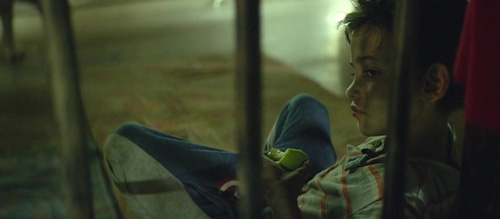
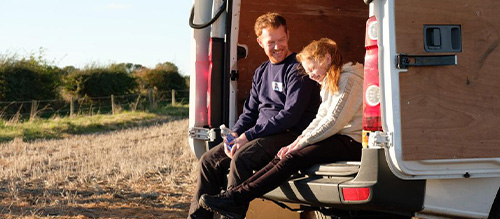
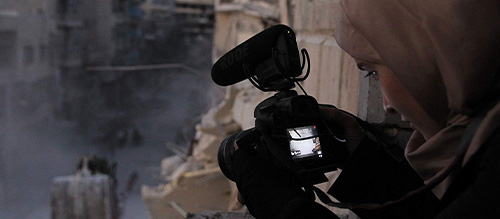
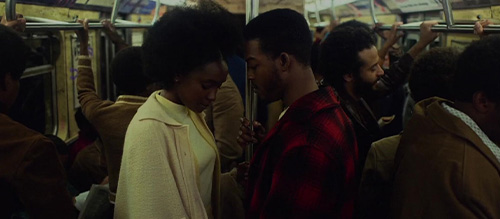
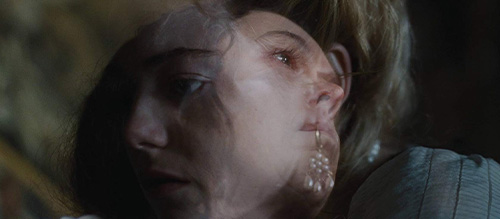
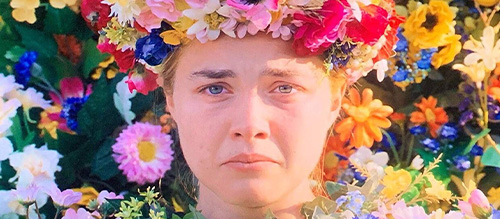
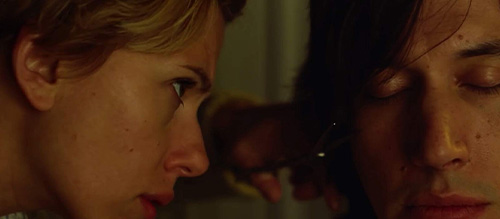
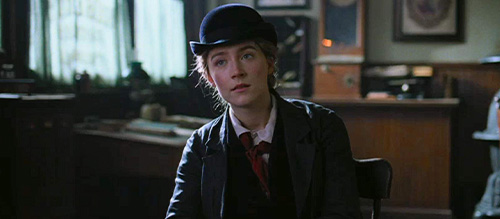
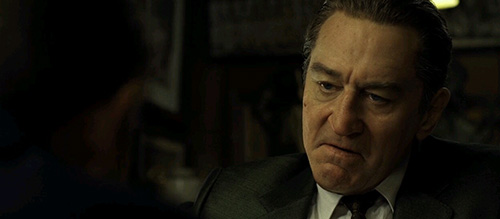
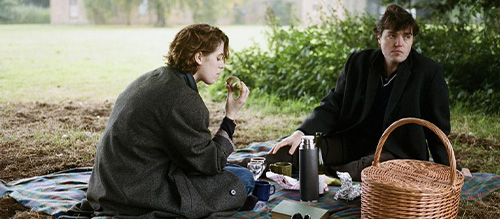




No comments:
Post a Comment